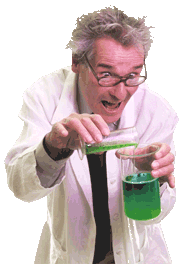At WiseGEEK, we're committed to delivering accurate, trustworthy information. Our expert-authored content is rigorously fact-checked and sourced from credible authorities. Discover how we uphold the highest standards in providing you with reliable knowledge.
What is Zinc Silicate?
Zinc silicate is a mineral and ore of zinc which has a number of industrial uses. It is also known as hemimorphite, and is sometimes referred to by the antiquated name “calamine,” which actually can refer to zinc silicate or zinc oxide, two minerals which can be hard to distinguish without inspection. This mineral is blue to green in color, with a crystalline structure, and can be found in natural deposits in several areas of the world. In addition to being used on its own, it may also be treated to extract the zinc it contains.
This mineral is transparent, although it can be rendered murky by the presence of impurities. Some regions contain large known deposits of this mineral, including Germany, Thailand, Belgium, parts of the United States, Poland, Siberia, and Austria. Zinc silicate may be mined and treated in these regions, and it can also be mined and shipped in raw form to other locations for processing.

Historically, zinc silicate was used as a food additive, added as an anticaking agents to some types of foods, but this use is relatively rare today. Another application in which it continues to be widely used is in the manufacture of products which need green phosphor, such as fluorescent lamps and display tubes. In this case, it is doped with other minerals, and it can be rendered hazardous to handle by the doping agent.
This mineral is also widely used in coatings which are designed to inhibit corrosion. Zinc silicate can be used in corrosion inhibitors such as those applied to ships, buildings, and certain types of vehicles. The mineral acts to help protect the underlying surface from corrosion, extending its lifetime. Anti-corrosive coatings are especially important when something is being used in settings where corrosion is likely; oceangoing boats, for example, are prone to damage from the saltwater they sail through. It may be known as “inorganic zinc silicate primer” when it is used in these settings.
Exposure to this mineral is not necessarily harmful, although excess zinc intake can cause health effects. In fact, zinc is a necessary dietary mineral which many people absorb in adequate amounts by eating a balanced diet. Too much zinc can interfere with the absorption of other dietary minerals. Individual products made with this mineral may be harmful because of additives used during manufacturing; products which are dangerous may carry warning labels to familiarize people with the precautions associated with the product.
AS FEATURED ON:
AS FEATURED ON:










Discussion Comments
In my experience, zinc silicate is very helpful in anti-corrosion coatings for boats. I grew up in an area very close to the harbor and kept a boat there myself. I have seen examples of corrosion caused by salt water on a boat with little or no coating.
I feel sorry for the people that have to put the time and money into fixing their boats because of corrosion when it can be easily prevented.
On a steel hull, zinc really adds to performance and longevity of the material. It is also a very economical way to protect steel against corrosion.
During some remodeling and renovations around my house and property, we decided to put up a steel chain link fence to enclose the front yard. I was concerned as to how well the fence would hold up during our wet seasons. We get a lot of snow and rain.
I didn’t want the spring to reveal a rusted fence after having it for only a little while. After doing some research, I found a professional grade galvanizing paint. It was a zinc-rich galvanizing compound spray.
I found it quite easy to use. I loved that it was fast drying and didn’t require a top coat. The fence survived the winter quite well. I think we got a good product and expect the zinc compound to hold up really well against corrosion.
@amsden2000 - when you were little, did you have a weak immune system before taking zinc? I think the reason why zinc is so important in ear infection prevention is that it boosts your immune system.
The zinc itself might not have cured your ear infections, but maybe it boosted your immune system enough that your body could fight off the infection. Zinc and vitamin C are essential to any good immune system.
If I stop taking zinc for too long, my immune system starts getting lazy and I get sick a lot. Zinc is just as important to me as vitamin C is -- it keeps me healthy.
When I was young -- around 7 or 8 years old -- I had ear problems all the time. I would get ear infections and my mom couldn't figure out why. When we visited the doctor, he told me that my ear infections were because I didn't have enough zinc in my body. I had no zinc at all, amazingly enough.
After I started taking zinc supplements everyday -- my ear infections went away. I read up on zinc online and there's a constant debate if it actually helps with ear infections -- but it helped me. I didn't have any ear problems after that.
Any thoughts?
Post your comments